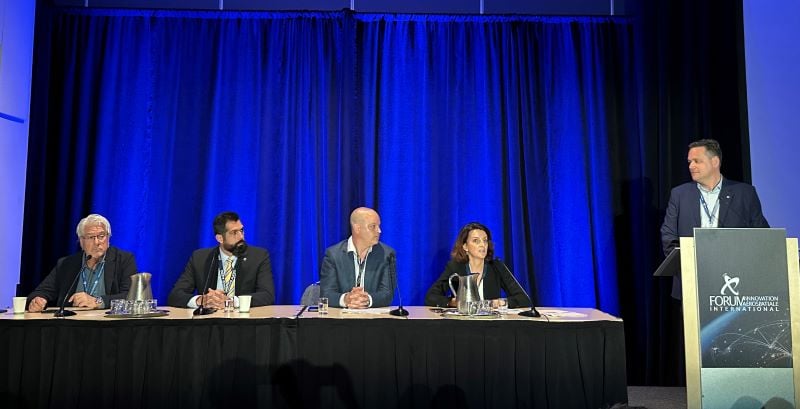Navigating the Future of Sustainable Aviation: Addressing Challenges and Opportunities
Key Ideas
- Sustainable Aviation Fuel (SAF) emerges as a crucial immediate solution to aviation emissions, with potential major impact without infrastructural changes.
- Despite challenges like supply constraints and competition for feedstocks, advancements in SAF production methods like Honeywell's technology offer promising solutions.
- Key industry players like Boeing are actively investing in SAF, with significant purchases to support commercial operations, emphasizing the urgency to scale up SAF adoption for decarbonization.
- The aviation industry faces the pressing need to find sustainable alternatives, with SAF standing out as a viable option to drive emissions reduction in the near term.
The International Aerospace Innovation forum in Montreal highlighted the critical role of sustainable aviation technologies in achieving carbon neutrality by 2050. While alternative propulsion options like electric, hybrid electric, and hydrogen are promising, Sustainable Aviation Fuel (SAF) emerges as the immediate solution due to its ability to impact emissions without extensive infrastructure changes. Challenges exist, including supply limitations and competition for feedstocks, but advancements in production methods, like Honeywell's technology utilizing biomass, show promise. Industry leaders, such as Boeing, are actively investing in SAF, with notable purchases to support operations, underscoring the industry's urgency to scale up SAF adoption for decarbonization. The aviation sector recognizes the necessity of finding sustainable alternatives, with SAF being a key player in driving emissions reduction in the foreseeable future.
Topics
Aviation
Aviation Industry
Carbon Neutrality
Sustainable Aviation
Technological Innovation
Biofuel
Alternative Propulsion
SAF Challenges
Aviation Sustainability
Latest News
